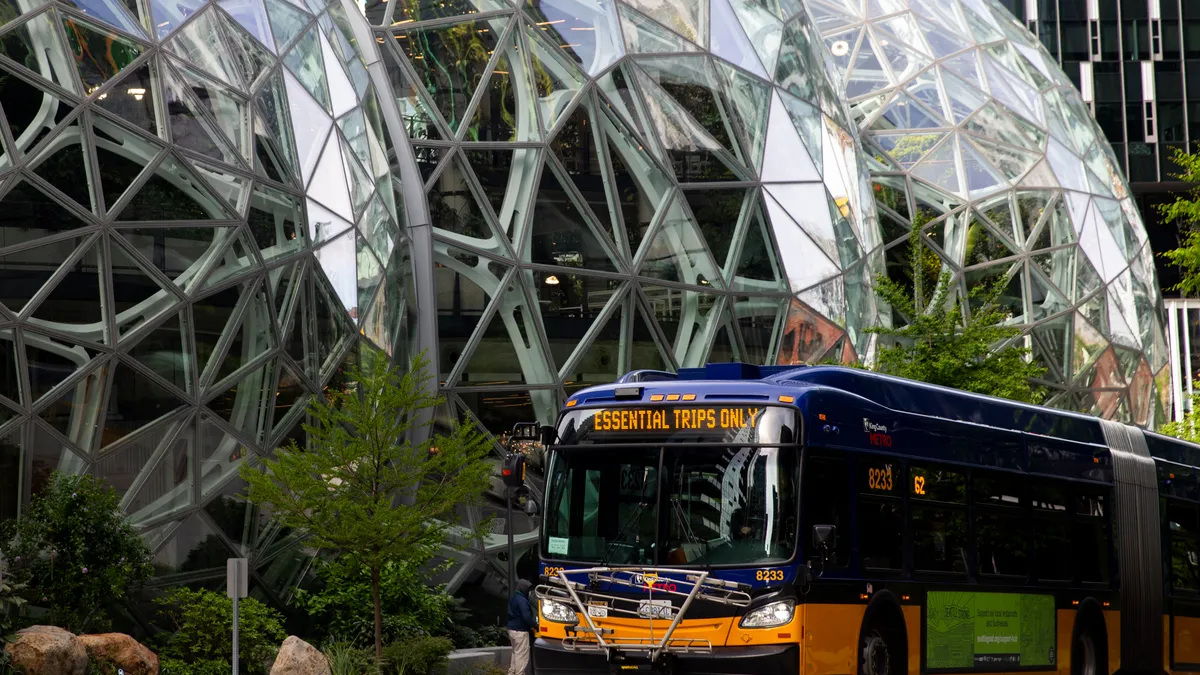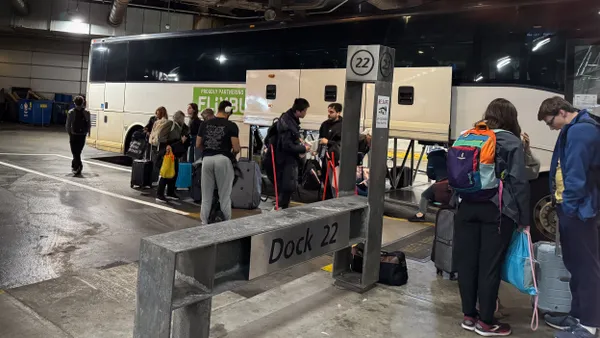Dive Brief:
- Expansions to transit services in the Seattle region will focus on historically underrepresented communities under long-range plans approved last week, a shift from its historic focus on serving commuters and suburban riders.
- The King County Council unanimously approved a series of long-range plans for the King County Metro that reflect the input of an “Equity Cabinet” of community leaders that first convened in 2018. Under the newly approved service guidelines, as well as strategic plans that cover plans through 2050, new services will be allocated to neighborhoods based on factors including race, income and historic need.
- Although the discussion process began before the COVID-19 pandemic, King County Council Chair Claudia Balducci said the pandemic “validated this way of thinking completely.” With fewer commuters coming in from the suburbs, transit officials saw that ridership stayed high from certain low-income communities, which Balducci said reinforced the need to reallocate service to those neighborhoods.
Dive Insight:
Historically, Balducci said, transit funding was deliberately distributed along geographic lines, weighted toward Seattle’s suburbs to encourage commuters to stay out of their cars. Subsequent service guidelines prioritized areas with crowding or delays, but the new service guidelines refocus investments on people to “better balance funding to those who take all day trips and rely on ridership," said Balducci.
Recommendations released in 2019 by the Equity Cabinet called for a focus on “areas with unmet need,” including those with higher proportions of low-income households, people of color, people with disabilities and limited-English speakers, as well as densely populated neighborhoods. The document also recommended increased safety, more incentives for transit-oriented development and better community engagement. Those recommendations, Balducci said, essentially formed the basis for the official long-range plans, which were widely praised as they made their way to the full council vote.
“What this means in plain English … is getting transit to communities that have historically not had the levels they need to get the access to the opportunities they deserve,” said King County Councilmember Rod Dembowski at a Dec. 7 meeting approving the metro plans.
The King County plan comes amid a broader push for equity and diversity in mobility services. The Los Angeles County Metropolitan Transportation Authority adopted its NextGen Bus Plan in 2020, which prioritized communities of need in its redesigned bus service. Cities including Boston, Kansas City and Richmond, Virginia have offered free transit to low-income residents to reduce barriers to ridership.
Advocates are also pushing for the federal government to fully fund transit systems, both through the infrastructure act signed by President Biden last month and the Build Back Better budget reconciliation plan that is before the U.S. Senate. A series of reports from the National Campaign for Transit Justice found that better federal funding could more than double transit service in some states, better serving minority and low-income communities.
Also included in the long-range plans is a renewed focus on sustainability, part of King County’s goal to reduce greenhouse gas emissions by 80% by 2050. That includes full electrification of the county’s bus fleet by 2035.
Now, Balducci said, officials will have to take the long-range plans into the action stage by securing additional funding and making sure voters approve. The county’s executive branch will provide guidance on potential revenue sources — especially alternatives to a sales tax that might disproportionately affect the very riders the plans are trying to help — and a possible pathway to ballot measures. So far, Balducci said, elected officials have been open to a more equitable distribution of funding, and she is hopeful that voters will be as well.
“The discussion has never really been about who pays, it’s always been about need,” Balducci said. “We’re aware that this can be a transformational plan that can make real impact on people’s lives.”











